The Wars Findley Quotes & Sayings
Enjoy reading and share 9 famous quotes about The Wars Findley with everyone.
Top The Wars Findley Quotes

Master Stuart made his letters into paper darts and launched them page by page from the roof of the house-watching them descend and fade into the green ravine below ... Some he saved to trade at school for other artifacts of war sent home by other elder brothers like his own-but only the letters mailed from France were worthy of this exchange. They had to have the smell of fire. — Timothy Findley
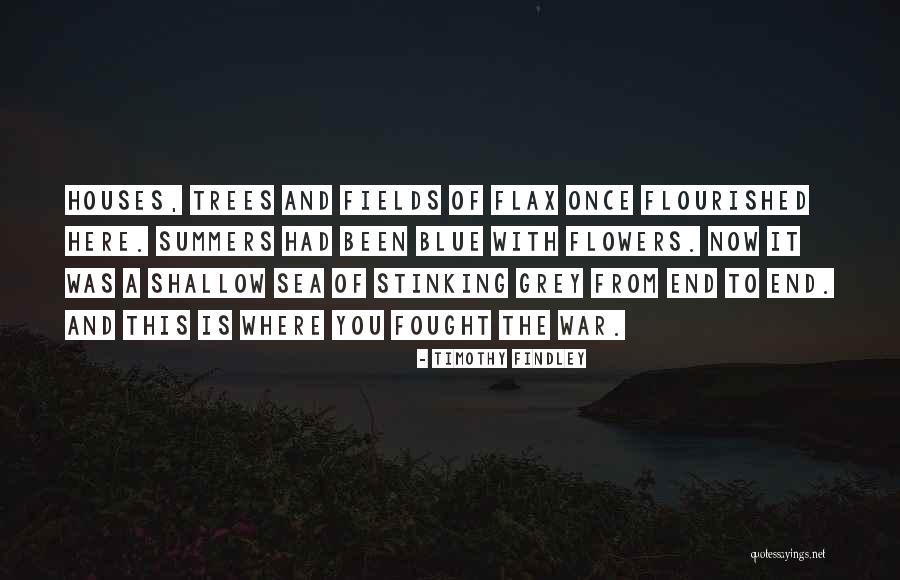
Houses, trees and fields of flax once flourished here. Summers had been blue with flowers. Now it was a shallow sea of stinking grey from end to end. And this is where you fought the war. — Timothy Findley
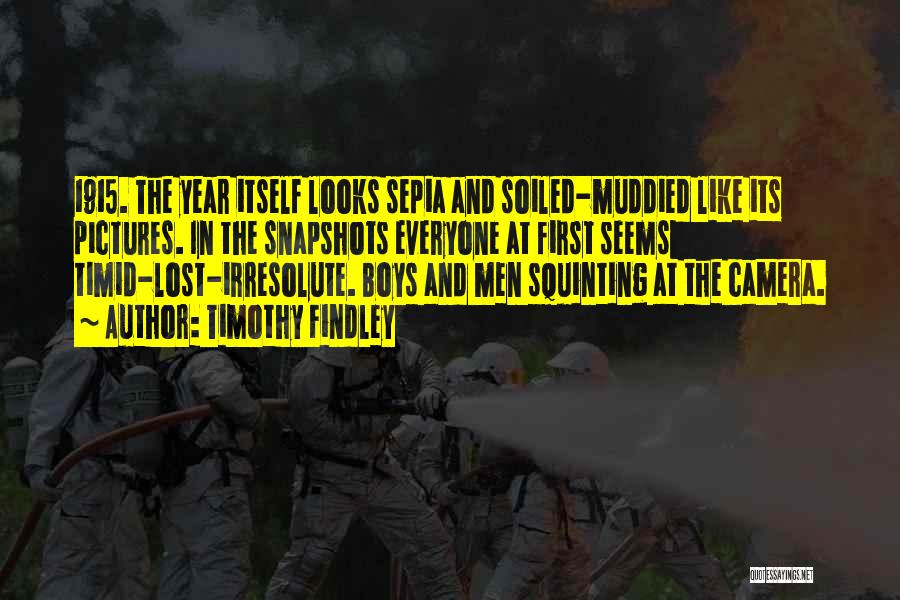
1915. The year itself looks sepia and soiled-muddied like its pictures. In the snapshots everyone at first seems timid-lost-irresolute. Boys and men squinting at the camera. — Timothy Findley
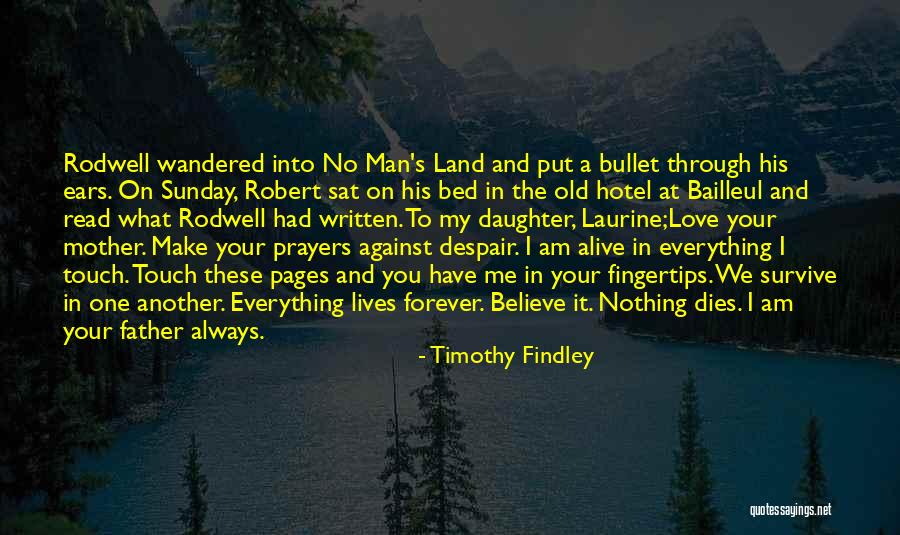
Rodwell wandered into No Man's Land and put a bullet through his ears. On Sunday, Robert sat on his bed in the old hotel at Bailleul and read what Rodwell had written.
To my daughter, Laurine;
Love your mother.
Make your prayers against despair.
I am alive in everything I touch. Touch these pages and you have me in your fingertips. We survive in one another. Everything lives forever. Believe it. Nothing dies.
I am your father always. — Timothy Findley

No one belongs to anyone. We're all cut off at birth with a knife and left at the mercy of strangers. You hear that? Strangers. I know what you want to do. I know you're going to go away to be a soldier. Well-you can go to hell. I'm not responsible. I'm just another stranger. Birth I can give you-but life I cannot. I can't keep anyone alive. Not anymore. — Timothy Findley

All of this happened a long time ago. But not so long ago that everyone who played a part in it is dead. Some can still be met in dark old rooms with nurses in attendance. — Timothy Findley

Here was an unknown quantity-a child in breeches with a blue scarf wound around his neck whose job it was to get them out and back alive. This ... was the greatest terror of war: what you didn't know of the men who told you what to do-where to go and when. What if they were mad-or stupid? What if their fear was greater than yours? Or what if they were brave and crazy-wanting and demanding bravery from you? He looked away. He thought of being born-and trusting your parents. Maybe that was the same. Your parents could be crazy too. Or stupid. Still-he'd rather his father was with him-telling him what to do. Then he smiled. He knew that his father would take one look at the crater and tell him not to go. — Timothy Findley
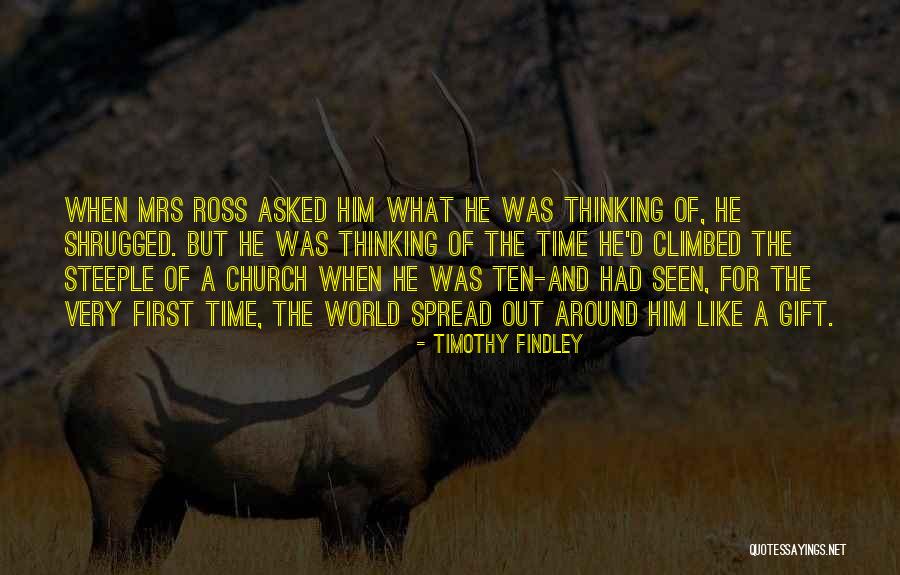
When Mrs Ross asked him what he was thinking of, he shrugged. But he was thinking of the time he'd climbed the steeple of a church when he was ten-and had seen, for the very first time, the world spread out around him like a gift. — Timothy Findley
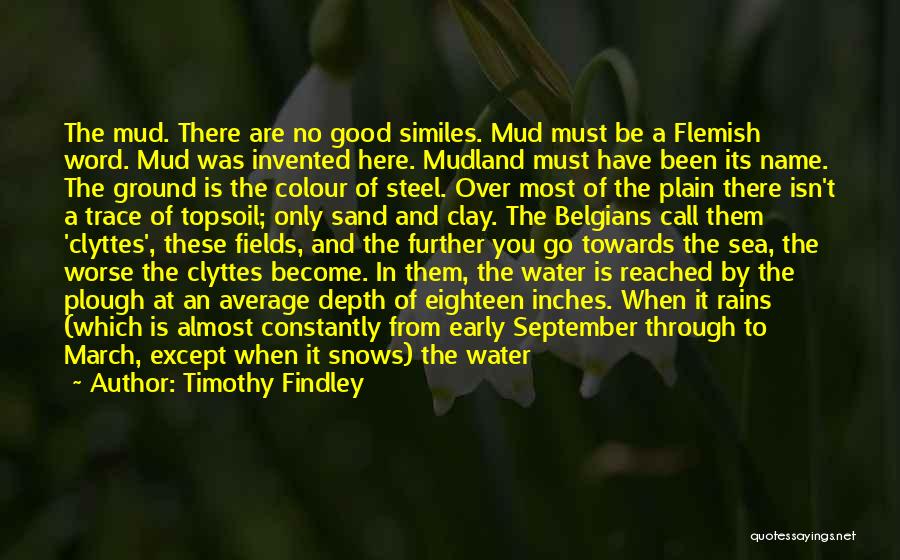
The mud. There are no good similes. Mud must be a Flemish word. Mud was invented here. Mudland must have been its name. The ground is the colour of steel. Over most of the plain there isn't a trace of topsoil; only sand and clay. The Belgians call them 'clyttes', these fields, and the further you go towards the sea, the worse the clyttes become. In them, the water is reached by the plough at an average depth of eighteen inches. When it rains (which is almost constantly from early September through to March, except when it snows) the water rises at you out of the ground. It rises from your footprints-and an army marching over a field can cause a flood. In 1916, it was said that you 'waded to the front'. Men and horses sank from sight. They drowned in mud. Their graves, it seemed, just dug themselves and pulled them down. — Timothy Findley





